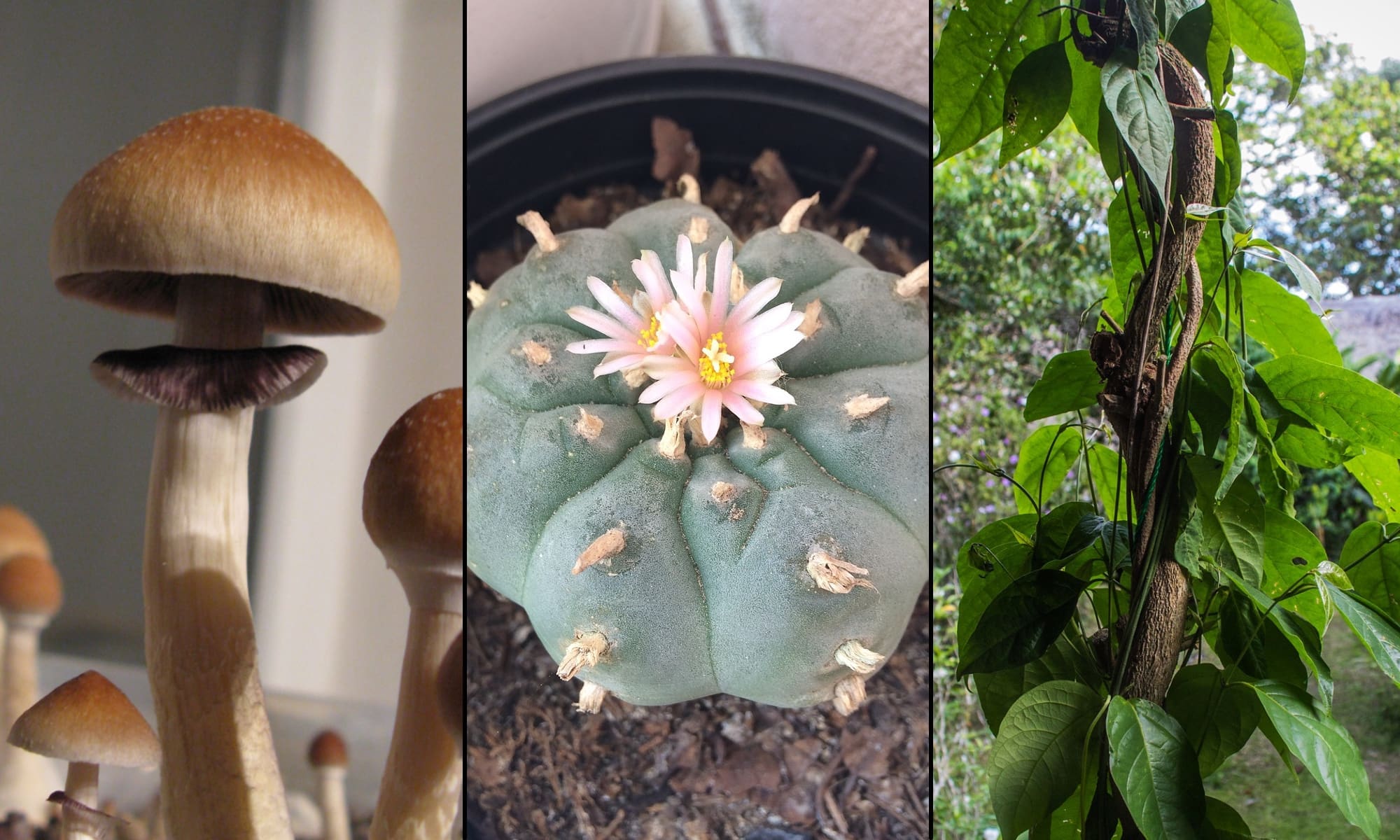Politics
Vermont Senate Passes Psychedelic Working Group Bill To Study How Entheogens Might Benefit Physical And Mental Health

Vermont’s Senate passed a measure that would establish a working group to study whether and how to allow therapeutic access to psychedelics in the state. If the bill is enacted, a report from the working group would be due to the legislature in November with recommendations on how to regulate the substances.
Senators on Wednesday approved the legislation, S. 114 during third reading on a voice vote. It now advances to the House of Representatives.
Lawmakers did not discuss the measure ahead of the final vote, but sponsor Sen. Martine Larocque Gulick (D) said ahead of the bill’s second reading a day earlier that the legislation “will start the state of Vermont on a journey to explore other possibilities and other options to treating mental illness.”
Under the proposal in its current form, Vermont would establish an eight-member Psychedelic Therapy Advisory Working Group that would “examine the use of psychedelics to improve physical and mental health and to make findings and recommendations regarding the advisability of the establishment of a State program similar to other jurisdictions to permit health care providers to administer psychedelics in a therapeutic setting and the impact on public health of allowing individuals to legally access psychedelics under state law.”
Many people believe psychedelics “never should have been designated as class one drugs to begin with,” Gulick said, “because their power to heal far outweighs their ability to harm, especially when taken therapeutically with a doctor or healthcare practitioner.”
As originally introduced, Gulick’s bill would have also legalized use and possession of psilocybin, but lawmakers on the Senate Health and Welfare Committee nixed that section last week to focus instead on the working group.
“It could be that decriminalization is going to get in the way of therapeutic use,” Sen. Ginny Lyons (D), who chairs that committee, said at the time. “What we’re looking for is the value of therapeutic use.”
The proposed group would review research and scientific literature as well as laws and programs in other jurisdictions. They would also be directed to provide an opportunity “for individuals with lived experience to provide testimony” as well as provide “potential timelines for universal and equitable access to psychedelic assisted treatments.
Under language of the bill now approved by the Senate, membership would consist of:
- A representative of the University of Vermont’s Larner College of Medicine, who would be appointed by the school’s dean
- A representative of the Brattleboro Retreat, a psychiatric and addiction hospital, who would be appointed by the president and CEO
- A member of the Vermont Psychological Association, appointed by the president
- A member of the Vermont Psychiatric Association, appointed by the president
- The executive director of the Vermont Board of Medical Practice or a designee
- The director of the Vermont Office of Professional Regulation or a designee
- The Vermont Commissioner of Health or a designee
- A co-founder of the Psychedelic Society of Vermont
In other drug-related actions this session, Vermont’s House also recently passed a bill to legalize and fund safe consumption sites, part of a pilot program aimed at quelling the ongoing epidemic of drug-related deaths. It’s another attempt by lawmakers to allow the facilities following Gov. Phil Scott’s (R) veto of a 2022 measure that would have established a task force to create a plan to open the sites.
A growing number of other states are also pursuing psychedelics reform legislation this legislative session, with a focus on research and therapeutic access.
For example, the Indiana governor recently signed a bill that includes provisions to fund clinical research trials into psilocybin.
Utah’s governor allowed a bill to authorize a pilot program for hospitals to administer psilocybin and MDMA as an alternative treatment option to become law without his signature.
Meanwhile, the Maryland Senate and House of Delegates both passed legislation to create a psychedelics task force responsible for studying possible regulatory frameworks for therapeutic access to substances such as psilocybin, mescaline and DMT. It would be charged specifically with ensuring “broad, equitable and affordable access to psychedelic substances” in the state. A companion measure is also advancing in the Senate.
An Arizona House panel also approved a Senate-passed bill to legalize psilocybin service centers where people could receive the psychedelic in a medically supervised setting.
Maine lawmakers are advancing legislation to establish a commission tasked with studying and making recommendations on regulating access to psychedelic services.
A Missouri House committee unanimously approved a bill to legalize the medical use of psilocybin by military veterans and fund studies exploring the therapeutic potential of the psychedelic.
Connecticut lawmakers held a recent hearing on a bill to decriminalize possession of psilocybin.
The governor of New Mexico recently endorsed a newly enacted resolution requesting that state officials research the therapeutic potential of psilocybin and explore the creation of a regulatory framework to provide access to the psychedelic.
An Illinois senator recently introduced a bill to legalize psilocybin and allow regulated access at service centers in the state where adults could use the psychedelic in a supervised setting—with plans to expand the program to include mescaline, ibogaine and DMT.
Lawmakers in Hawaii are also continuing to advance a bill that would provide some legal protections to patients engaging in psilocybin-assisted therapy with a medical professional’s approval.
New York lawmakers also said that a bill to legalize psilocybin-assisted therapy in that state has a “real chance” of passing this year.
Bipartisan California lawmakers also recently introduced a bill to legalize psychedelic service centers where adults 21 and older could access psilocybin, MDMA, mescaline and DMT in a supervised environment with trained facilitators.
A Nevada joint legislative committee held a hearing with expert and public testimony on the therapeutic potential of substances like psilocybin in January. Law enforcement representatives also shared their concerns around legalization—but there was notable acknowledgement that some reforms should be enacted, including possible rescheduling.
The governor of Massachusetts recently promoted the testimony of activists who spoke in favor of her veterans-focused bill that would, in part, create a psychedelics work group to study the therapeutic potential of substances such as psilocybin.
Photo elements courtesy of carlosemmaskype and Apollo.
















